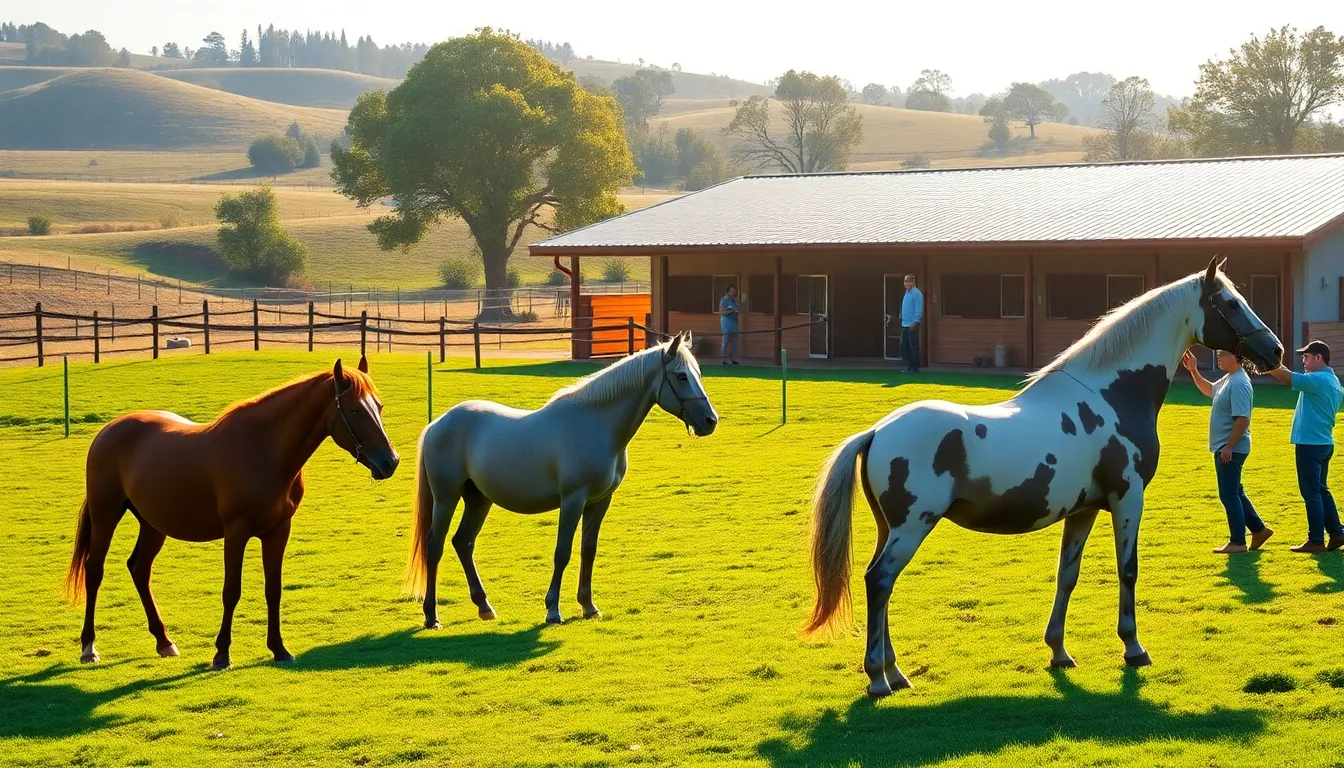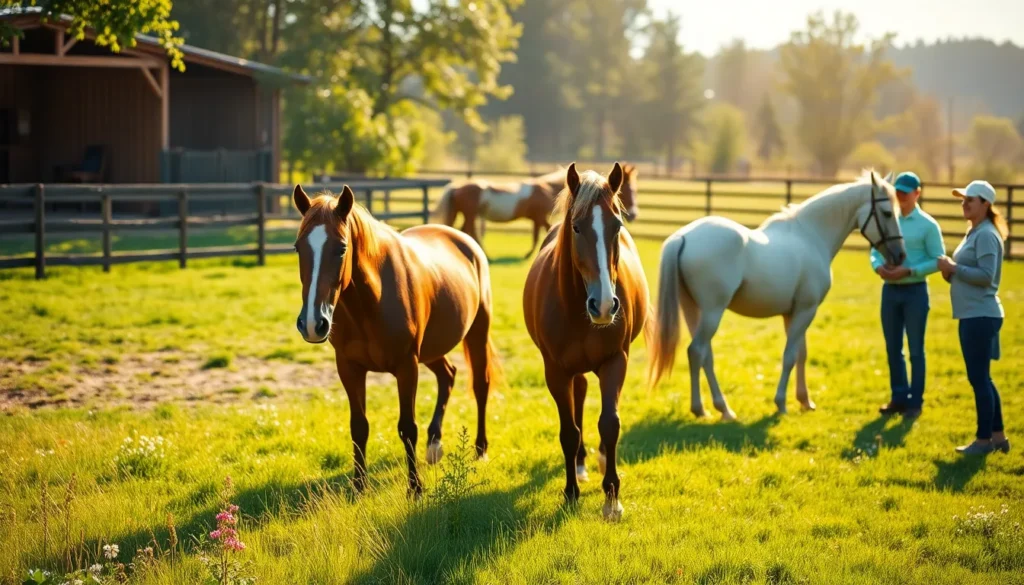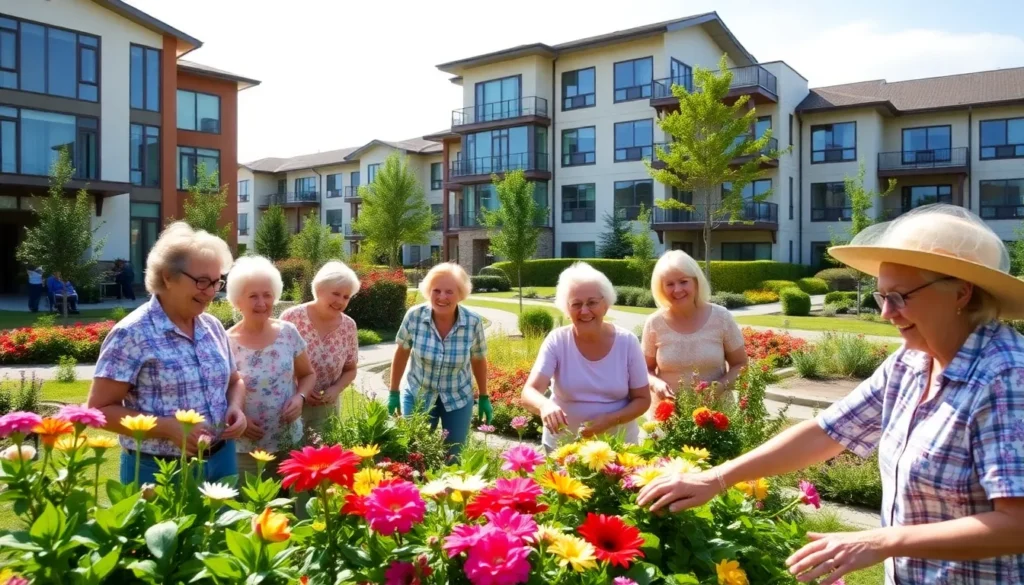Table of Contents
ToggleEver heard of a retirement home for horses? Picture this: your beloved steed hoofing it around a peaceful pasture in the sunset of their lives, munching on fresh hay and enjoying the company of other retired legends. Not to mention the surprising dash of humor that accompanies such an idyllic setup. As the world increasingly recognizes our four-legged friends’ needs, these havens offer a chance for horses to relax and thrive post-career. Let’s trot through what a retirement home for horses really entails and why it might just be the best decision you make for your horse.
What Is a Retirement Home for Horses?

A retirement home for horses is more than just a cozy stable. It’s a sanctuary where equines can unwind after years of hard work, whether in racing, show jumping, or simple companionship. These facilities provide nurturing environments tailored to the specific needs of aging horses. While many people envision sunny pastures and leisurely grazing, a retirement home for horses also emphasizes health management, social interaction, and plenty of leisure activities. Essentially, it’s like a spa retreat for horses, where they can truly enjoy their golden years surrounded by caring staff who understand their needs.
The Importance of Retirement Homes for Horses
Retirement homes play a crucial role in horse welfare. After a lifetime of service, horses deserve a comfortable environment that caters to their physical and emotional needs. Aging horses may develop various health issues, requiring specialized care. Having a dedicated retirement home allows these majestic animals to receive appropriate medical attention, regular exercise, and a balanced diet. Besides, the emotional aspects can’t be ignored. Horses are social creatures, and retirement homes provide opportunities for them to bond with fellow retirees, helping to prevent loneliness and anxiety.
Also, these homes serve as an educational resource for owners, raising awareness about the needs of retired horses. When owners understand the importance of these sanctuaries, they are more likely to seek suitable arrangements, ensuring better lives for their equine companions.
Types of Retirement Homes for Horses
There is no one-size-fits-all when it comes to retirement homes for horses. Various types cater to different needs and budgets:
- Private Farms: Some horse owners maintain their own farms, creating personalized retirement spaces for their beloved companions. These setups can be as luxurious as you want, featuring large pastures, individual care, and even custom feeding routines.
- Commercial Retirement Facilities: These establishments specialize in providing comprehensive care for retired horses. They often include amenities like spacious stalls, grazing pastures, and specialized veterinary care. Some even have trained staff providing daily exercise and socialization.
- Non-Profit Sanctuaries: These homes offer a safe haven often funded through donations. They focus on rescuing and providing a nurturing environment for retired or unwanted horses. Many non-profits are committed to holistic care, ensuring each horse receives love and respect.
- Rescue Organizations: Similar to sanctuaries, rescue organizations take in horses that may have been neglected or abandoned. They work to rehabilitate these animals and often provide lifelong care in a retirement setting.
How to Choose the Right Retirement Home
Selecting the ideal retirement home for a horse can feel overwhelming. But, a few key factors can simplify the decision-making process:
- Evaluate Facilities: Visit several retirement homes, paying attention to the condition of the stables and the overall environment. Does it feel welcoming? Are the horses well-cared for?
- Check References: Reach out to other owners who have placed horses in the home. Their insights can guide your decision, providing real-world experiences.
- Understand the Care Offered: Investigate the daily routines at the facility. Are horses fed nutritious diets? Is regular veterinary care part of the package?
- Consider Social Opportunities: Horses thrive socially. A good retirement home should allow for interaction among residents, as it plays a significant role in their overall happiness.
- Discuss Costs: Be clear about the fees involved and what they cover. Knowing all expenses upfront will help you make a financially sound decision.
Costs and Funding Options
Understanding the financial aspect of retirement homes for horses can help owners make informed decisions. Costs can vary significantly depending on location, amenities, and level of care:
- Monthly Fees: These can range from a few hundred to several thousand dollars, covering services such as feeding, shelter, and veterinary care.
- Additional Costs: Owners should factor in extra expenses like specialized treatments, supplements, and transport.
Funding options can include:
- Personal Savings: Setting aside funds in advance ensures you’re well-prepared.
- Crowdfunding: Many owners turn to social media platforms to raise money for their horse’s care among friends and family.
- Grants and Donations: Some non-profit facilities may offer grants for lower-income individuals, making it more affordable to retire a horse at a reputable sanctuary.
Success Stories from Retirement Homes
Retirement homes for horses have given countless equines a new lease on life. One touching example is that of a thoroughbred named Charlie, who raced for years before retiring with injuries that required ongoing care. He found solace at a local retirement home, where he flourished alongside his peers, engaging in light exercise and enjoying endless pasture time. Charlie’s story is just one of many showcasing how retirement homes help horses live their best lives.
Similar success stories can be seen across various facilities, illustrating the positive impact of these sanctuaries. Many horses regain their vitality, showcasing their playful spirits after receiving the care and companionship they deserve. Owners who have made the leap often report seeing a remarkable difference in their horses’ demeanor, proving that retirement homes are indeed worthwhile.




